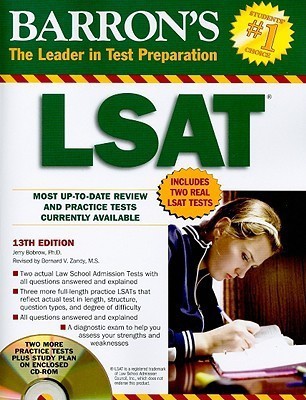-
Recent Posts
- IIT JEE Test: Comprehensive Guide for Aspiring Engineers
- CFA Certification: The Key to Advancing Your Finance Career
- Elevate Your Career with Okta Certification
- The Definitive Guide to CPA Certification: Elevating Your Accounting Career
- The Ultimate Guide to FRM Certification: Unlocking Career Success in Financial Risk Management
-
Follow Us
-
Archives
- July 2024
- June 2024
- May 2024
- May 2023
- October 2022
- July 2022
- April 2021
- August 2020
- July 2020
- July 2019
- June 2019
- January 2019
- December 2018
- September 2018
- August 2018
- June 2018
- April 2018
- February 2018
- January 2018
- August 2017
- July 2017
- April 2017
- December 2016
- November 2016
- October 2016
- September 2016
- August 2016
- July 2016
- June 2016
- May 2016
- April 2016
- March 2016
- February 2016
- January 2016
- December 2015
- November 2015
- October 2015
- September 2015
- August 2015
- July 2015
- June 2015
- May 2015
- April 2015
- March 2015
- February 2015
- September 2014
- August 2014
- May 2014
- April 2014
- February 2014
- January 2014
- December 2013
- October 2013
- September 2013
- June 2013
- May 2013
-
-
Categories
Tags
accountability admissions application Business Because business school CAT CAT Mock Test CET CFA CFA study schedule CPA entrepreneurship free study material gmat GMAT goal score gmat study partner gmat tutor gre INSEAD interview Ivy League linkedin LSAT magoosh MBA MBA entrance exam MCAT study partner mock test motivation practice questions recipe snacks start-up study study buddy study group studypal study partner study spots Study Tips superfood syllabus test prep time mamangement TimePrep
Your Expert Guide to Self-Preparation
For LSAT, GRE, GMAT, MCAT, and PCAT
By Jay Cutts
Lead Author, Barron’s LSAT and MCAT Prep Materials
Happy September!
REMEMBER: The 3 Keys to Self-Prep Success:
- A well-planned study schedule
- High quality prep materials
- Peer support
If you’re still not doing well enough, look for a qualified tutor!
THIS MONTH: Let’s take a quick look at where things stand for you
MCAT: You are probably done with the MCAT or will be soon. If you haven’t taken the test yet, spend the remaining time focusing on timing strategy and problem-solving strategy.
PCAT: Some schools will accept the January PCAT. If you must take the September test, focus on timing and math strategy.
LSAT: Unless you’re getting super high scores, plan to take the LSAT in December. If you’re not getting close to a winning score, consider the STEPS to the LSAT program. For a minimal cost it will boost your self-prep with a better study structure, advanced instruction, and connection with other STEPS students. If STEPS is still not enough, consider an experienced coach.
Some people think they should take the October test either because they think later tests will put them at a disadvantage for admissions or because they want to see how they’re doing, so they can decide whether to retake. In my experience you are not at any disadvantage by taking the test in December. It’s better to take the test later and get a better score than to submit an earlier score that is lower.
Second, you can find out how your scoring by doing your own mock test. It’s not necessary to take the test officially to evaluate your score. One problem with taking the test in October is that during the weeks you’re waiting for your score, it can be really hard to keep yourself studying.
GRE/GMAT: You may need to take your test as early as October, though some deadlines may allow you to take the test as late as next February or March. By mid-month take a mock test. If you are not scoring where you need, look for a qualified tutor. A tutor who understands intuitive math strategies can be extremely helpful even if you only work together a few hours.
PREP HINTS:
This month we’re talking about Analytical Reasoning (AR), a type of section on the LSAT.
AR gives most LSAT takers headaches. (I’m assuming you’ve worked on AR problems already.) The problem with AR is that if you don’t get the answer quickly and intuitively, you probably don’t have good tools for getting to the answer analytically. Most people, when stuck on a question, go around in circles.
The key to AR is to develop an extremely systematic approach for logical problem solving. That’s not easy to do. It took me 25 years to perfect my system and boil it down to an extremely simple and easy to use tool. When you work on a tough problem, try to figure out a fool-proof way to organize the information so that you can’t help but get to the answer. At first your method will probably be too time consuming but keeping working at it.
The other challenge for AR is to organize the setup accurately and to diagram it in a way that best helps you solve the problems.
I have to say that I feel that I’ve captured all of the strategy for the LSAT in the Barron’s book. It doesn’t cost too much and it’s extremely thorough. For a little extra you can upgrade to the STEPS to the LSAT program, which adds in a comprehensive study plan, additional advanced instruction, and peer support.
Next month we’ll talk math, which is on the GRE, GMAT, and PCAT.
Jay Cutts is the director of the Cutts Graduate Reviews and lead author of the Barron’s LSAT Prep Book, Barron’s MCAT Prep Book, and Barron’s MCAT Flash Cards. He has helped thousands of students get into graduate and professional programs since 1990. He is the creator of the STEPS to the LSAT self-study support program.
Mr. Cutts offers free admissions planning help at:
Comments are closed.


